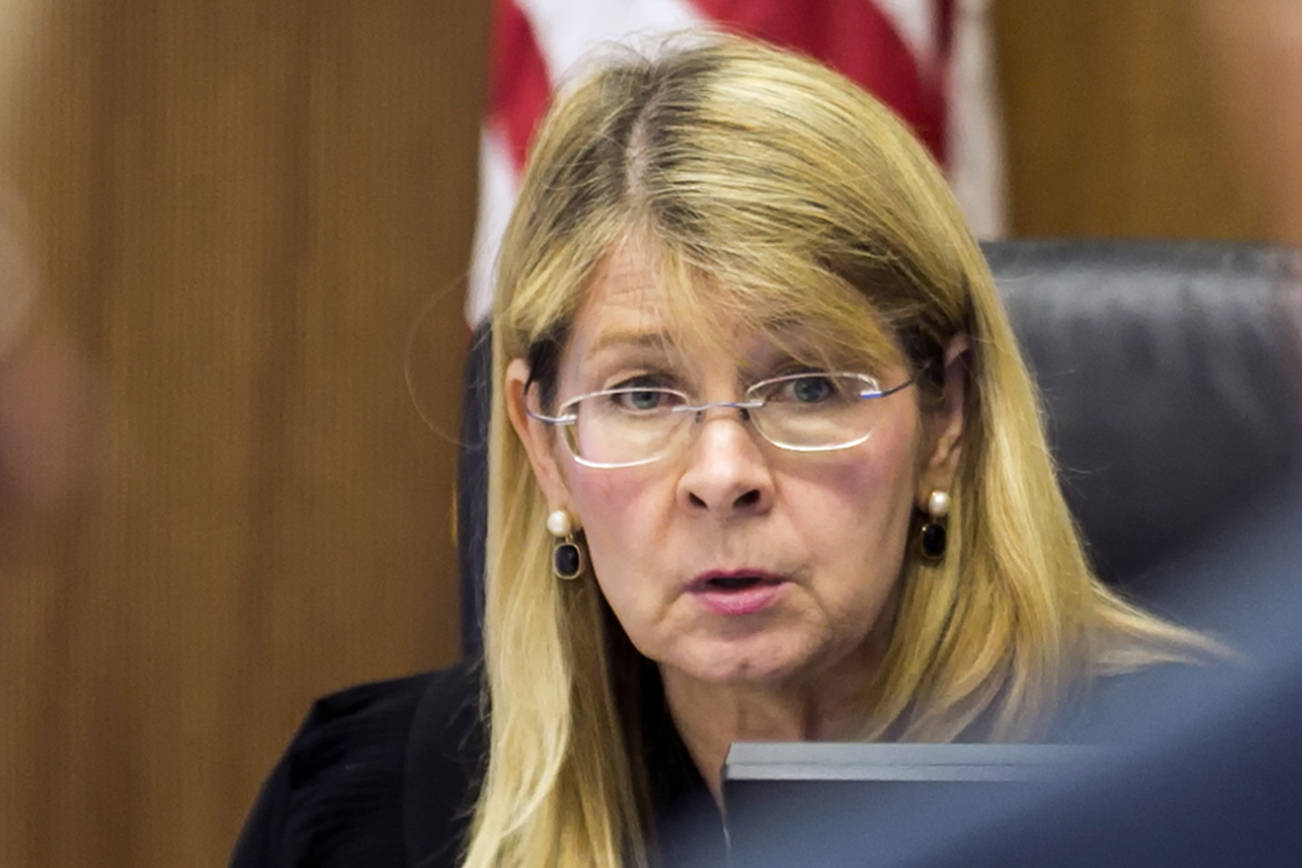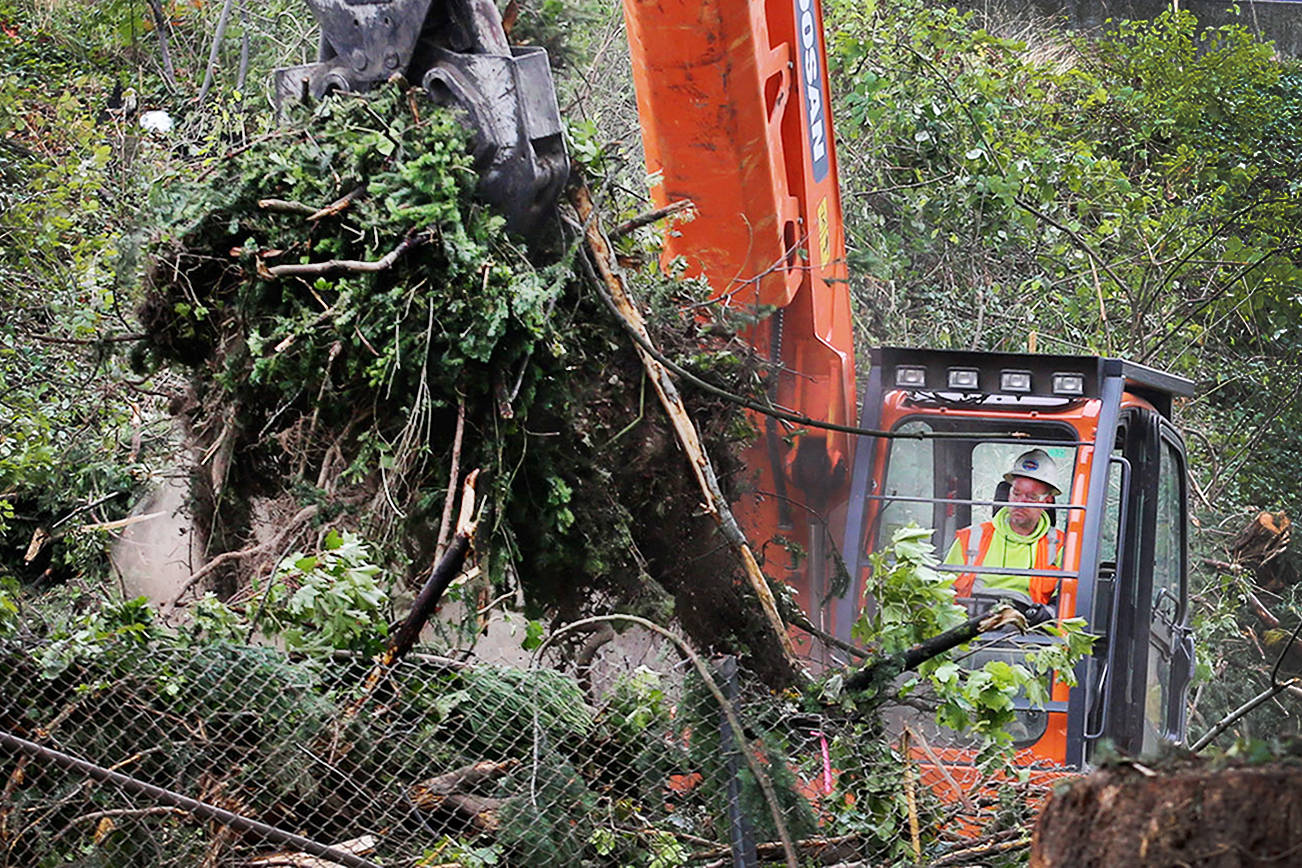EVERETT — Concerned about the baby girl’s parents’ drug use and run-ins with police, state child advocates in 2013 intervened just days after she was born.
The girl was assigned to a court program that was supposed to look out for her interests, as the state weighed whether to terminate her mother and father’s parental rights.
In the years that followed, staff and volunteers with Snohomish County’s Volunteer Guardian Ad Litem Program repeatedly crossed legal and ethical lines in an effort to keep the child from returning to her parents, or from regular visits. To appellate court judges who reviewed the case, the guardians strayed far from their neutral role.
The behavior continued for years, and included lying, spying, withholding and destroying evidence. Court records detail retaliation against attorneys, breaches of confidentiality to benefit the foster parent, and an illegal audio recording in open court.
The original trial judge labeled the misconduct “pervasive and egregious.”
“It’s a tragic case for our client and the child,” said Adam Ballout, an Everett-based attorney who represented the girl’s mother. “The court has to take a close look at the structure and the makeup of that program and whether it can even exist in its current form.”
The problems are described in an Aug. 12 opinion from the state Court of Appeals. A three-judge panel ruled that the wrongdoing deprived the family of its right to due process. They ordered a new trial in King County to determine parental rights and possible sanctions over the misconduct.
The appeal highlights troubling issues about a part of the court system where day-to-day operations are largely hidden from public view, in sealed documents and hearings that typically attract little notice.
Even the presiding judge for Snohomish County Superior Court, which runs the guardian program, acknowledged the case revealed serious problems. By the time the appellate court issued its opinion last week, local court officials had spent years revamping the volunteer guardian program. They changed its name and policies, brought in new employees and increased training requirements.
Ballout, however, considers the changes cosmetic. He’s pushing for more far-reaching reforms to correct what he considers a biased system.
Washington state authorities, meanwhile, haven’t decided whether they’ll appeal to a higher court.
“Uninformed, inconsistent, dishonest and biased.”
State social workers had ample reasons to worry about the newborn’s safety.
The baby and mother tested positive for methadone, and the mom also had marijuana in her system, according to court documents. The girl’s father had a history of substance abuse and domestic violence. While still in the hospital post-delivery, security guards escorted him from the premises after a verbal spat with the mother.
Four days after birth, state authorities removed the girl from her parents’ custody. They placed her with a foster parent, where she has remained throughout the case. The girl had nine other siblings, according to court documents, which identify her only by her birth date and the initials A.H.
The Daily Herald is not identifying the parents to protect A.H.’s identity.
Snohomish County, like some other places in Washington, uses a system of volunteer court-appointed advocates to safeguard children in high-conflict custody cases.
That was the idea when Snohomish County Superior Court created its Volunteer Guardian Ad Litem Program 40 years ago.
The volunteer guardians are sworn officers of the court who are supposed to gather evidence and make recommendations about what’s best for the child. The volunteers must pass a criminal background check, but there’s no requirement for qualifications in legal or social work.
The first volunteer guardian for A.H. stayed on the case until the girl was almost 2. The guardian recommended it was in the baby’s best interest to remain with the foster parent. She opposed expanded visitation rights.
During that time, the guardian “committed numerous breaches of confidentiality that benefited the foster parent,” the appellate order says. “She disclosed previous parental terminations and the parents’ criminal records to the foster parent.” She lobbied to end parental visits if they failed to follow a strict diet for the child, which they later discovered was unnecessary.
When the mother attended a parenting class with her child, the guardian tried to watch without the mother’s knowledge, even after an instructor told her that her presence wasn’t allowed for confidentiality reasons, court records say.
The volunteer guardian died in early 2015. Her replacement was her supervisor, Susan Walker, a paid employee with the court-run program. The new guardian submitted a declaration stating only that her predecessor was “no longer able to work the case,” without explaining that she died.
The new guardian had little involvement with the child for the next seven months, the appeals decision says. A six-day trial seeking to terminate parental rights started in late August 2015. Superior Court Judge Anita Farris, who heard the case, found the guardian’s testimony “uninformed, inconsistent, dishonest, and biased.”
Farris cited seven instances when the guardian’s testimony lacked candor. The judge decided against giving the court-appointed guardian’s testimony any weight, but still made an oral ruling to terminate parental rights.
The judge also took up the concerns raised by the mother’s attorney over missing records. Farris ordered the Volunteer Guardian Ad Litem Program to produce any documents related to communications with the child’s foster parent and the adoption agency, including evidence that one of the guardians illegally supplied copies of the parents’ criminal records.
The mother’s attorney filed a complaint against the program in Superior Court. The parents also asked to have the guardian removed from the case for misconduct. A lawyer for the prosecuting attorney’s office assigned to represent the program, Sara Di Vittorio, argued against removing the guardian.
The court deemed the complaint unfounded, and the guardian stayed on for the time being.
Afterward, other attorneys at the ABC Law Group, where the birth mother’s attorney is a partner, complained of retaliation from the guardian program. They said payback came in the form of unnecessary objections to their discovery requests, and by refusing to allow their attorneys to enter the guardian program’s office without an escort.
‘The sticky wicket’
In January 2016, Farris allowed the guardian — the supervisor employed by the program — to withdraw from the case without a hearing, according to the appellate decision. The judge appointed a private-practice attorney to take her place as guardian ad litem.
During February 2016 hearings to gather evidence, Farris found that the staff attorney for the program, Kirsten Haugen, “proffered untruthful testimony” and that “abusive litigation tactics were used for improper purposes …”
“The … program also employed ‘document dumps’ during posttrial production to make it hard to find information, destroyed or withheld case-related e-mails, and made false or misleading statements to cover up prior misconduct,” the judge wrote.
Around the same time, the parents’ attorneys noticed a coordinator with the guardian ad litem program, Katherine Smith, using a cellphone to record a court hearing without notifying the judge or other participants. It’s illegal under Washington law to make an audio recording without permission from all parties involved. Several signs in and around the courtroom warned against using cellphones.
During a pause, attorneys alerted Farris to the recording. The judge warned that if anyone repeated the same mistake, “the offender will not be given the chance to just delete it to keep his or her cellphone and avoid criminal and/or civil penalties.”
“Despite seeing thousands of lawyers, pro se litigants, and civilian witnesses go through the courts, I have only seen two people ever attempt to audio record a court proceeding without court permission,” Farris wrote in an order. “Somehow, everyone else has been able to determine proper courtroom procedure except this eight year veteran court employee whose employment duties in part are presumably to advise (volunteer guardians ad litem) how to conduct themselves in court.”
In March 2016, the parents filed a motion to vacate the decision to terminate their parental rights, citing the misconduct in the case. Farris denied their motion. She ruled that the trial had been fair, in spite of the well-documented problems.
Later that year, the parents filed a new motion for sanctions against the program — and, by extension, against Snohomish County Superior Court.
That fall, the court asked Farris to recuse herself from any sanctions proceedings. Farris agreed but continued to hear arguments about a final written order to terminate the birth parents’ parental rights.
Later that spring, Farris decided to remove herself from the entire case. She said the parties would be unable to receive an impartial trial in Snohomish County. She entered a 317-page memorandum explaining her reasoning.
A.H.’s mother filed motions to vacate the termination order and to receive a new trial. The father joined the motions. The governor appointed Judge T.W. Small of Chelan County Superior Court to hear the case. At an October 2017 hearing in Snohomish County, Small denied the motions.
The parents appealed, calling the process biased. The appeals court agreed.
“Because the dependency, the termination trial, and the subsequent proceedings occurred in a biased tribunal where the superior court assisted and advocated against the parents, we agree and reverse the termination order,” the opinion says.
Though Farris displayed no bias, they deemed the process unfair.
“But the sticky wicket is that the tribunal in which (the girl’s) dependency and termination proceedings took place was biased because of the involvement of superior court employees working against the parents in this case,” the opinion says.
Farris, in their opinion, correctly recused herself but should not have entered the termination order.
‘We realized there were problems’
The misconduct in the case caught the attention of Lisa Kelly, the Bobbe & Jonathan Bridge Professor of Children and Family Advocacy at the University of Washington School of Law. Kelly followed the trial years ago and read the appellate opinion with interest.
“Ultimately, I think this decision upholds the integrity of the dependency system by not allowing such egregious misconduct to go unchecked,” she said.
A guardian ad litem should work independently of the state to advocate for the child’s best interest, she said. The court-appointed guardian can collect information to help a judge reach a sound decision but isn’t supposed to share those facts with other parties.
Kelly praised the parents’ attorneys for “fortitude and courage” in continuing to represent their clients’ interests. She was pleased the court ultimately appointed an attorney to represent what the child wants going forward in the process in addition to a guardian ad litem.
The dependency system in Washington is fragmented when it comes to representing children. Kelly was glad to see the appeals court recognize the issues that can arise when the guardian ad litem program is so closely aligned with the court system.
“This definitely does point out the problematic nature of having the court and the (guardian ad litem) program administered under the same umbrella,” she said.
The state agency responsible for safeguarding children is weighing its next legal steps. The Washington State Department of Children, Youth and Families, a new agency created in mid-2017, attempts to return children home safely whenever possible but seeks an alternative permanent home if that’s not possible.
“In this case, (the agency’s) position was that the decision of the Snohomish County court to terminate parental rights was legally correct, and that the parents received a fair trial and due process under the law,” an agency spokeswoman said. “When a termination of parental rights order is reversed, one of the unfortunate impacts for children is that they remain in the limbo of temporary foster care. DCYF has not yet decided whether to seek further appellate review in this case, as the Court of Appeals decision was issued earlier this week.”
The state says the Snohomish County guardian program is meeting its legal obligations for children in foster care.
The chief judge for Snohomish County Superior Court said the misconduct spurred numerous changes, starting in 2016.
“We realized there were problems and we worked to correct them,” said Presiding Judge Bruce Weiss, who took over the leadership of the court long after problems surfaced.
Just about everything that could have gone wrong went wrong in that case, Weiss said.
“Historically, when you look at the program, there’s no other case where that’s happened,” he said. “The cliche that’s used is a perfect storm.”
Since then, court officials have overhauled procedures and clarified roles. They increased training to, among other things, stress honesty, truthfulness and the correct way to handle documents.
They hired an external candidate to lead the program, and in 2017 changed the name to Court Appointed Special Advocates, or CASA for short. They brought in the director of the UW’s Court Improvement Training Academy to conduct an all-day meeting with stakeholders and build trust.
“The program that we have now is very different from the program we had during the case,” Weiss said.
Court administrators aren’t done tinkering.
“We still continue to monitor the program and will make changes in an effort to improve it,” the judge said.
The program now known as CASA serves 208 children, superior court administrator Shane Nybo said. There are 57 volunteers assigned to active cases, and another 17 inactive volunteers. The program employs 10 staff members.
Ballout, the mother’s attorney, considers the changes insignificant. He said superior court conducted “a civility course” when it really needed a thorough and independent investigation.
“This emboldened an already toxic culture of intimidation from a scandal-plagued program,” Ballout said, in a statement. “To our knowledge, there have been no substantive changes, other than cosmetic, to a program that has been found to have destroyed evidence, lied in open court, spied on attorneys, engaged in abusive use of litigation and has now been found to have violated the due process rights of families. We hope that the Superior Court and all stakeholders immediately review all pending cases for appropriateness and take immediate meaningful action.”
Ballout said his client still hopes to regain custody of her 6-year-old daughter and has become a successful parent to the girl’s younger sibling.
No date has been set for the new trial.
Reporter Jerry Cornfield contributed to this story.
Noah Haglund: 425-339-3465; nhaglund@herald net.com. Twitter: @NWhaglund.
This story has been modified to correctly identify the attorney representing the child.








